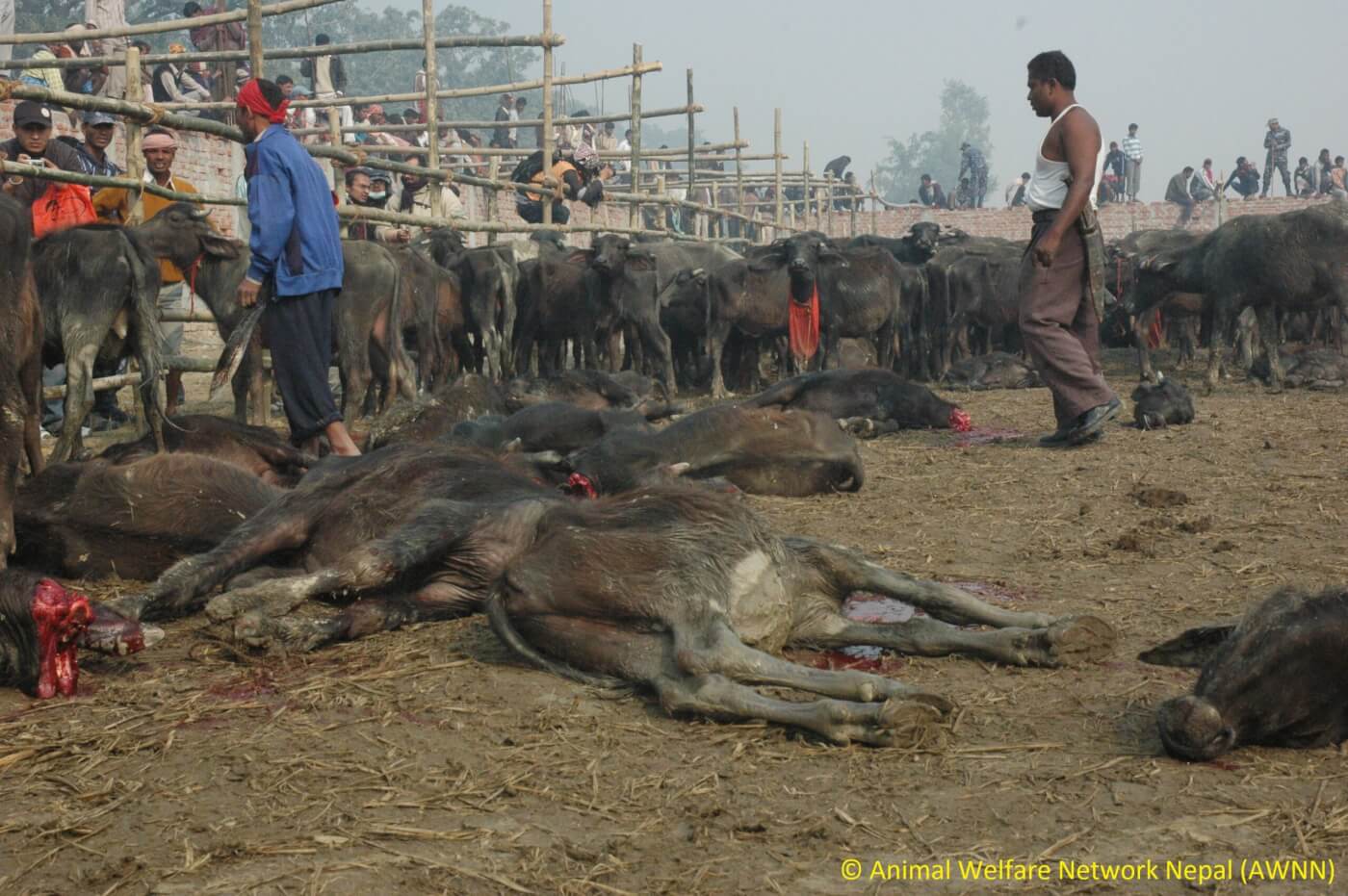PETA India Demands an End to Nepal’s Gadhimai Animal Sacrifice
Ahead of Nepal Gadhimai Festival slated to be held between 7th and 9th December despite global public uproar, PETA India has written to Chief Minister of Bihar Nitish Kumar urging vigilance at the border to stop Indian animals from being crossed over to Nepal. PETA India has also written to the Hon’ble Prime Minister of Nepal, Shri KP Sharma Oli, urging decisive action to stop the massacre of thousands of animals there—considered the world’s largest animal sacrifice. The event has drawn widespread international criticism for its inhumane practices, grave public health risks, and environmental damage. In both letters, PETA India has warned that the transport, holding and slaughter of different species of animals together could result in another pandemic.
Since the last Gadhimai festival, the COVID-19 pandemic has claimed the lives of over 7 million people worldwide. Many scientists believe the virus first spread to humans from a live animal market where different species were confined and slaughtered in close proximity—as they are at the Gadhimai Festival. Crowded live animal and slaughter settings create a breeding ground for pathogens to spread, mutate and jump species, triggering potential pandemics. PETA India’s letter also points out that H5N1 bird flu—which has a 60% mortality rate in humans—is currently spreading in chickens, cows and other animals, including humans.
A 2020 article in the Journal of Public Health Policy reads, “At Gadhimai, butchers decapitate the animals in their enclosures with no separation from the other animals. There are no slaughter slabs, shade, or water for the animals in pens waiting for the event to begin. There is no containment of bodily fluids of the butchered animals, including blood flow. These breaches in animal slaughter practices, along with lack of hygienic standards or protective measures (such as personal protective equipment) expose butchers, temple attendants, and the public to the blood and body fluids of the butchered animals and create a high-risk environment for human and animal disease outbreaks through many transmission routes. Among these routes are zoonotic transmission to humans of highly pathogenic avian influenza (HPAI), anthrax, and hydatidosis, which are sporadic, and leptospirosis, brucellosis, tuberculosis, and salmonellosis that are endemic in animals in Nepal.”
PETA India advocates ending the Gadhimai animal sacrifice would protect animals and humans and enhance Nepal’s international reputation, thereby drawing tourists.
End Nepal Animal Massacre





